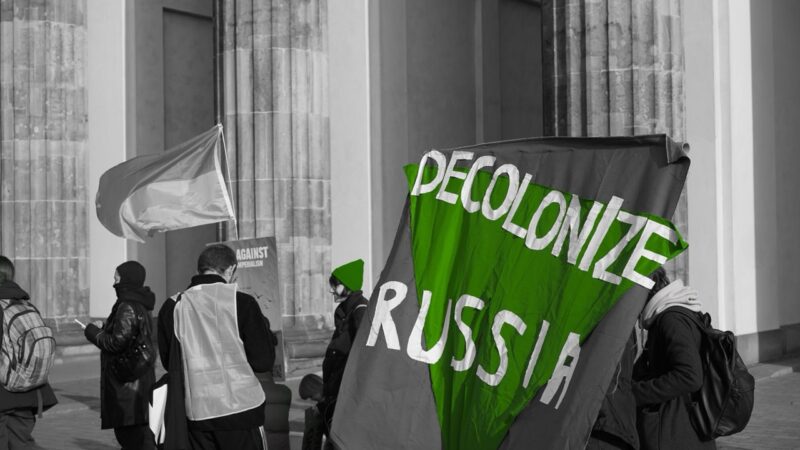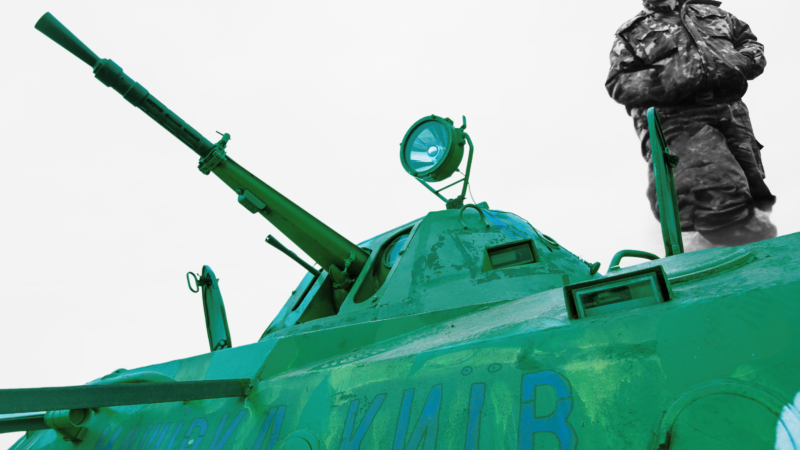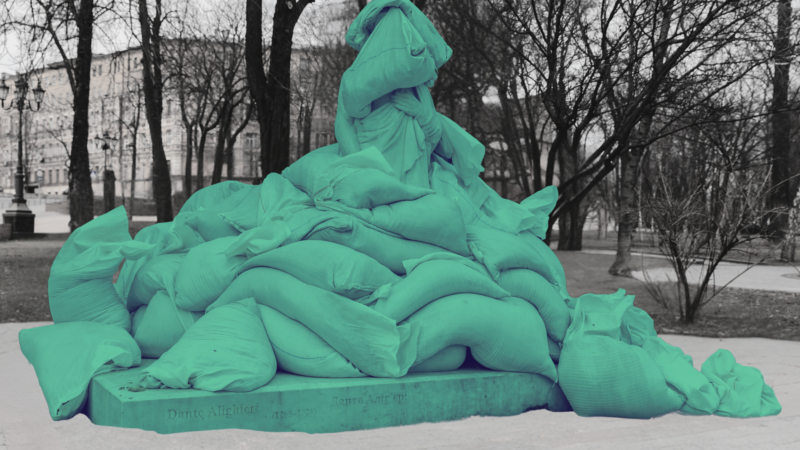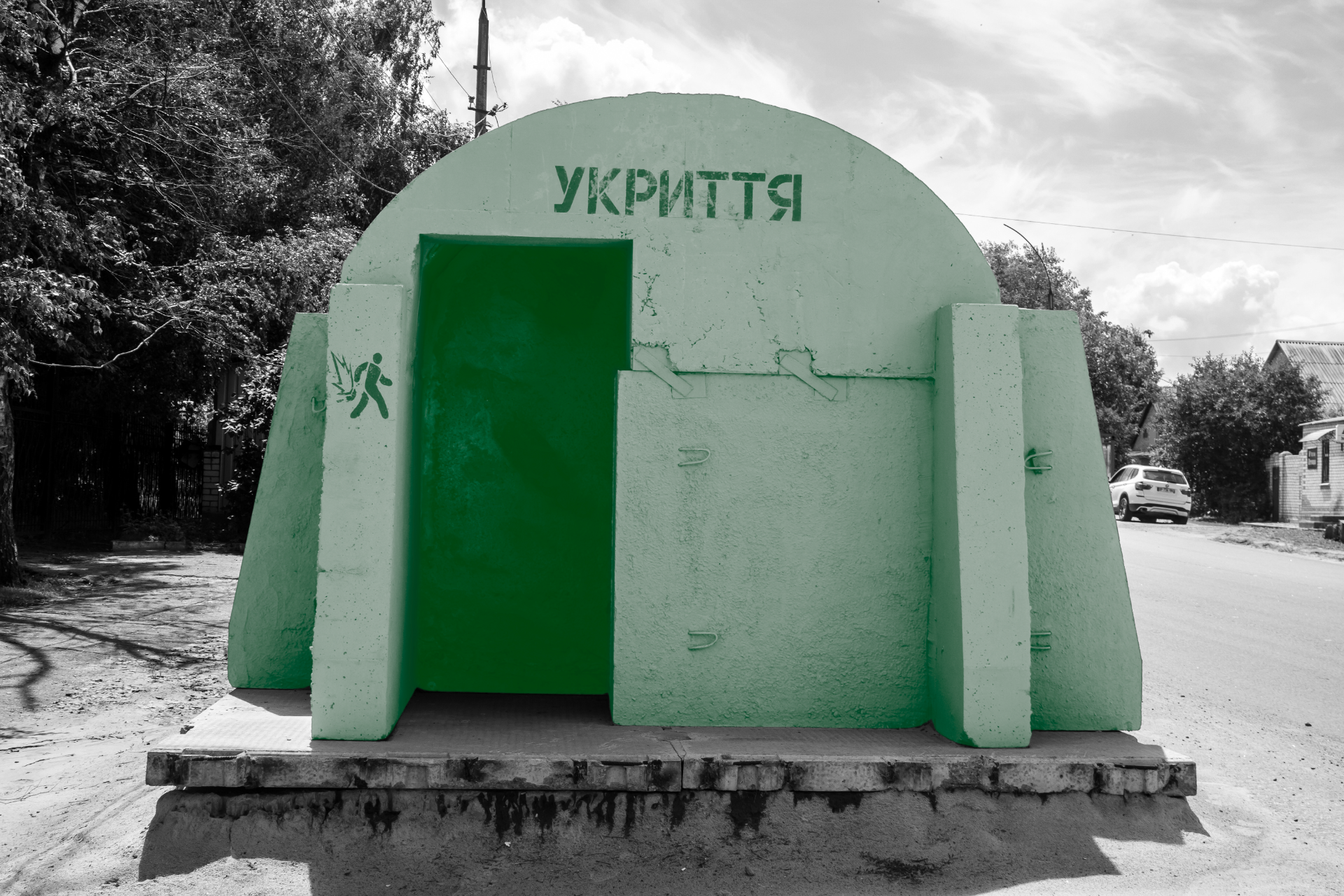Interview with Andriy Shevchenko | Russia aims to alter our collective thinking and behaviour.
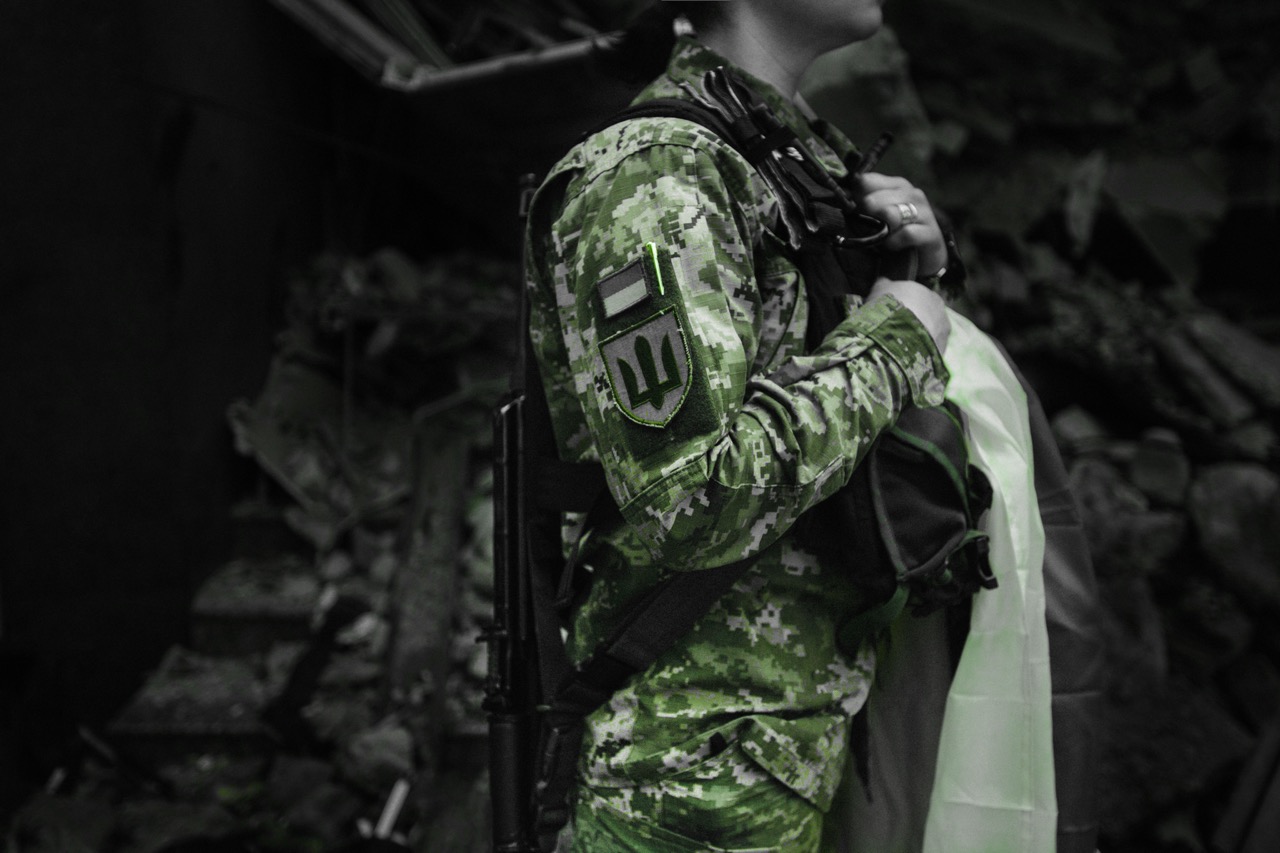
Oleksandr Pankieiev: My first question is more general regarding the current situation in the world, in light of the Trump administration’s foreign policy. How would you describe the changes in the international order which this administration is seeking to reshape, particularly concerning Ukraine, Russia, and Russia’s war against Ukraine?
Andriy Shevchenko: We in Ukraine see both new opportunities and new risks. I believe our challenge is to harness the energy of the new Trump administration to achieve a feasible result in Ukraine. The administration aims to find quick solutions, but there are risks here, as fast solutions do not necessarily lead to good and sustainable outcomes. Regarding the battlefield and the front line, it is fair to say that we have not faced such a difficult situation since March 2022. Conditions on the battlefield are quite dangerous. The international coalition we have built over the last three years has yet to fully comprehend the seriousness of the situation and the gravity of the decisions we will need to make in the upcoming months.
Pankieiev: You mentioned the situation today in comparison to March 2022, when the full-scale invasion had just begun. Ukraine’s position has evolved since then, and it has even regained some territory. How do you view Ukraine’s current status? Is Ukraine now better equipped to handle potential scenarios, given the new administration in Washington and the changing dynamics in the European Union?
Shevchenko: In that sense, it is indeed a different situation. It is a different army now, on our side and on the Russian side—and a different war being fought, with different priorities. The world has changed since 2022. We have hundreds of thousands of soldiers on the front line, which in most places resembles a dead zone or gray zone, with five to ten kilometres between the opposing sides. Drones and new technical developments used by us and the enemy have dramatically changed the front line. We also now understand the enemy’s strengths and weaknesses much better, and it’s up to us to build on that knowledge and use it to our advantage. Regarding this, it is very important for us to be on the same page with our key international allies.
We have achieved a lot. If we look at the progress made, it’s truly incredible. We have built logistical supply chains of incredible complexity. We have initiated an unprecedented amount of training operations for the Armed Forces of Ukraine and its military reserves, the Territorial Defense Forces. We have established true interoperability with our Western partners in terms of operational planning, logistics, and supplies, which has produced tangible results on the ground. In the very first year of the large-scale war, Russia lost half of its land-based assault capabilities. It is crucial for our friends in Poland and Germany to understand that without having fired a single shot or lost a single soldier, Europe can feel much safer because we have stripped Russia of its land-based assault capabilities—the essence of the Russian army’s military might. We have rendered its Black Sea Fleet dysfunctional, completely changing the situation across the Black Sea coastal region, and we have exhausted their missile arsenals. Therefore, this international coalition we have built together has produced significant results. Nevertheless, having said that, we are truly in a very difficult and risky situation today, and we must make very wise decisions to address it.
Pankieiev: Since your time as the ambassador of Ukraine to Canada, what projects have you been involved in? Could you describe some of the projects you are currently working on?
Shevchenko: In the first days of the full-scale Russian invasion, we launched Media Center Ukraine, a grassroots initiative by media and communication professionals designed to assist foreign journalists coming to Ukraine to cover the war. The Media Center now has more than 4,000 foreign media representatives in its database, making it a significant and crucial operation in fighting the information war. In 2023 I served as Deputy Minister of Defense under Minister Reznikov. I was responsible for NATO and the EU, as well as for maintaining relations with our most precious allies, including Canada and the United States. I was also responsible for the Ramstein group [Ukraine Defense Contact Group]—an extraordinary alliance of nations that have been supporting us throughout the war.
Currently, I am with the Ukrainian World Congress, serving as the head of its mission in Ukraine. My work primarily involves facilitating dialogue between Ukrainians, within Ukraine and outside the country. As one of my friends jokingly remarked, engaging in “inter-Ukrainian” diplomacy can sometimes be quite a tricky craft. However, this also allows me to contribute to this extraordinary cause and operation undertaken by the global Ukrainian community, which has been instrumental in supporting Ukraine in countless ways. The scale of that assistance is truly remarkable. It is a great privilege to be a part of this major operation.
Pankieiev: Russia has employed sophisticated propaganda techniques to influence both domestic and international perceptions of Ukraine. How do you think Ukraine and its Western partners can more effectively combat this disinformation? What steps should be taken at both national and international levels?
Shevchenko: We should start with definitions. The term “disinformation” seems to me less relevant now, and we should consider “cognitive warfare” instead. Essentially, disinformation involves intentionally seeding false information. However, what Russia has been doing is much more extensive. Cognitive warfare is a form of attack where you influence an adversary’s collective thinking or behaviour to benefit you. This is how our enemies perceive the situation. They do not merely view it as disinformation; they aim to alter our collective thinking and behaviour. And when I say “our,” I’m referring not just to Ukraine and Canada. It would be a mistake to think there is one cognitive attack against Ukraine and another against Canada or the US. Russia sees this as one major operation with different theatres of war.
Pankieiev: What is the goal? What is Russia actually trying to achieve, and what specifically is Russia trying to change in our cognitive perception of the world around us?
Shevchenko: There are several tracks they are working on, but we should recognize that they are not the first to try this. One country to consider is obviously China. For at least the last twenty years, the Chinese have viewed the cognitive domain as part of their defense doctrine and operations. The Russians quickly followed China’s lead in this regard, and it would be fair to admit that we in the free world have lagged behind in acknowledging the significance of this domain. While we were tilting at windmills of disinformation and preaching critical thinking, China and Russia elevated cognitive warfare to the same level as the conventional domains of warfare—air, sea, space, and cyber. This is the enemy we face and the challenge we now encounter.
They have developed capabilities that hijack the Western concept of free speech. Most importantly, they have established robust firewalls within their own countries, to isolate their domestic populations from our influence. This presents quite a challenge. Consider this: if, for the price of three ballistic missiles, you can shift a foreign policy direction of a nation, why not do it? The art of winning a war without firing a shot is a concept that traces back to ancient Chinese texts on war.
I am particularly thinking of our neighbours in Moldova. For them, it’s not a theoretical threat. Just a couple of months ago, in Moldova there was a referendum on EU accession, which resulted in a very narrow victory for EU accession, at 50.35 percent. This occurred due to extensive Russian propaganda and clear instances of vote buying. Once again, if you can alter a nation’s geopolitical choice with [non-military] actions like these, why not utilize this strategy? It is a significant threat that we must take seriously.
Pankieiev: You mentioned the concept of free speech, which is actually fundamental for protecting our rights and democracy. You referred to Russia hijacking it. Could you please elaborate on this important concept?
Shevchenko: We must realize that never in human history could you so easily influence so many people in such a short period of time. Obviously, this is due to social media, big tech, and the technical capabilities to manage big data. Then, with the widespread use of artificial intelligence, things become even more dangerous and complicated. All these wondrous developments are based on the beautiful concept of free speech. In many ways, social media is a child of the free world and a genuine embodiment of the concept of free speech. At the same time, however, social media has become a trap, a minefield, and a breeding ground for distracting and destructive cognitive warfare operations. Our enemies have been widely exploiting this, and unfortunately, I think we have failed to establish a solid common ground with big tech in addressing these challenges. For example, social media algorithms block millions of Ukrainian posts that inform the world about the war, while allowing tons of misleading, divisive, and harmful trash to flow freely, significantly impacting public opinion and our collective thinking.
There must be ways to regulate this situation. Either big tech should address it voluntarily or the government should impose regulations. Regrettably, I believe that the situation in the US has dramatically changed in that regard; I don’t expect much regulation to be imposed on big tech by the current US administration. It is indeed a challenge, and we must confront it. I see this as a significant intellectual challenge, and I encourage all those who understand the gravity of the threat to [seek real solutions].
Pankieiev: This is particularly true in Ukraine, where information is crucial. Access to information, added to Russia’s operations in Ukraine to undermine our cognitive resistance, are significant factors. How well is Ukraine responding?
Shevchenko: It may be that our friends and allies from the other nations of the free world are in a much more difficult situation. Because by now, I believe that Ukrainians have developed a strong understanding of how Russian operations work. Yet the Russians can still be successful in Ukraine, undermining unity in society and creating political turbulence that harms our ability to defend ourselves. If you look at the nations across Europe or North America, in many ways it is a fantastic opportunity for the Russians to employ all their tactics—to disrupt, break trust, and weaken these free nations.
What should we do? I think we need to take an offensive approach. We must find ways to go on the offensive in the cognitive domain, just like we seek the most effective means to attack the enemy with diplomatic tools, economic sanctions, and conventional warfare. We’re dealing with an enemy that has built [extremely effective] firewalls, so it’s not going to be easy. However, this is the way to win and save lives.
As a former journalist, I believe we should not be misled into a false ethical debate about free speech. There was no free speech in occupied Bucha or Izium. What we saw were dead civilians found on their doorsteps or in the streets next to their homes; that is the result of a Russia that uses all the tools at its disposal to destroy its enemies. We must ensure that we can effectively and efficiently attack the enemy in the cognitive domain. We in Ukraine have been working on this with some success, but it needs to be a well-orchestrated, multinational effort. This will be one of the major fields of our cooperation with NATO and our most valued allies. It was Clausewitz who said that a war ends when one of the sides can no longer bear it politically. This gives us a good sense of where we are at right now in this war.
Pankieiev: Over the next year, given the current situation, how do you see the war’s circumstances changing?
Shevchenko: We realized back in 2022 that this would be a marathon, and we needed to ensure that when we “hit the wall,” as marathon runners say, we would still have enough strength and mental resilience to keep running—or, in our case, to keep fighting. When I say “we,” I’m referring to the collective decision-making process of the coalition of free nations that have united to support Ukraine. I think by now we have a very good understanding of the situation. We understand the importance of what is happening. We understand now how the Russians fight, and we recognize their weak spots. I also see a lot of good collective will across the globe. It is true that some governments or nations appear to have war fatigue and they hesitate, but they are outweighed many times by the governments, organizations, nations, and individuals who have a solid grasp of the fight we are engaged in and who stand with us.
Pankieiev: You mentioned that you are currently working with the Ukrainian World Congress. Why did you choose to work with them, and what is the significance of the Ukrainian diaspora in the current efforts to defend Ukraine? Could you share your perspective on the role of the Ukrainian diaspora, which now includes around 26 million Ukrainians living outside of Ukraine?
Shevchenko: I have always been fascinated by the incredible strength, creativity, and dedication of the Ukrainian diaspora. I saw this first as a journalist, then as a member of Ukraine’s parliament, and, of course, as the ambassador of Ukraine in Canada. When you come to Canada, you are immediately exposed to this extraordinary, vibrant Ukrainian Canadian community. I had the opportunity to see the incredible work that Ukrainian organizations around the world are doing, which is truly extraordinary. This fascination with the movement and this incredible network led me to the decision to work with the Ukrainian World Congress.
As you rightly pointed out, this is a very specific time, because the war has pushed millions upon millions of Ukrainians out of the country. We estimate that today there are around 30 million Ukrainians in government-controlled territories in Ukraine, along with perhaps three to four million living in occupied territories. When President Zelensky was sworn in as president in 2019, he said we are a nation of 65 million, meaning globally. If you do the math, you will realize that we likely have around 30 million Ukrainians living outside of Ukraine. For the first time in our history, we are in a situation where there are probably as many, if not more, Ukrainians living outside Ukraine than within it. Throughout our history, we have experienced different periods; sometimes we had a government, and at other times we did not—for years or even centuries—yet we have always lived on our own soil. Now, we face a very different situation.
This new context brings new opportunities for Ukrainians, including advocacy, community building, and preserving their identity around the globe. It also presents new challenges. The Russians are attempting to infiltrate Ukrainian organizations and hijack the organized Ukrainian community, sometimes through education and schools, sometimes through church and religion, and in other ways. Consequently, this requires new strategies and a higher level of organizational effort. In this sense, it is a crucial time for the Ukrainian World Congress. It is vital that the global Ukrainian community finds the right ways to stick together, protect their identity, advocate for Ukraine, and build strong institutions that can endure for years and decades to come.
